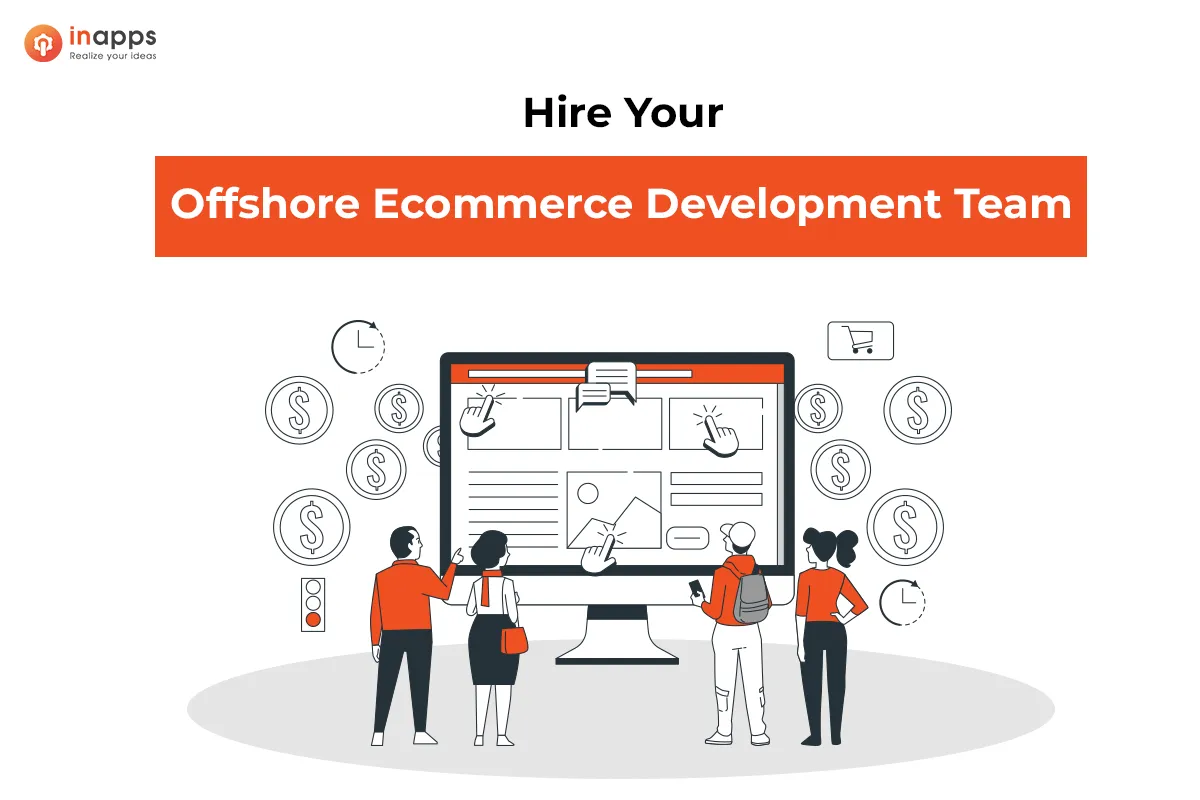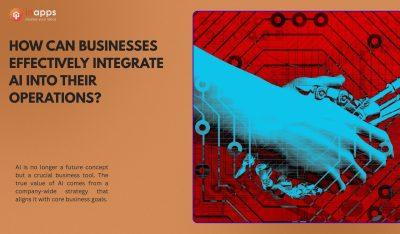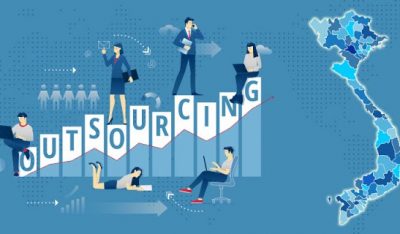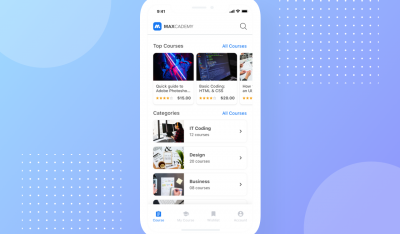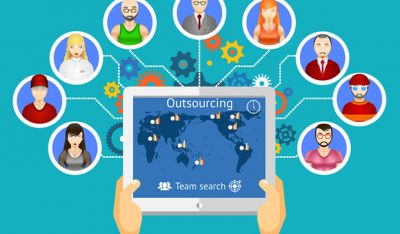- Home
- >
- Ecommerce Development
- >
- Hire Your Offshore Ecommerce Development Team
QA EAs online retail sales projected to reach $6.3 trillion in 2023 according to Statista, businesses are increasingly seeking innovative ways to carve out their niche in the ecommerce industry. Building an offshore ecommerce development team is not just a strategy but also a necessity for companies aiming to stay competitive and scalable.
This approach taps into the substantial cost savings, estimated at 30-70% compared to onshore development costs, allowing businesses to reinvest these savings into market expansion and enhancing customer experiences.
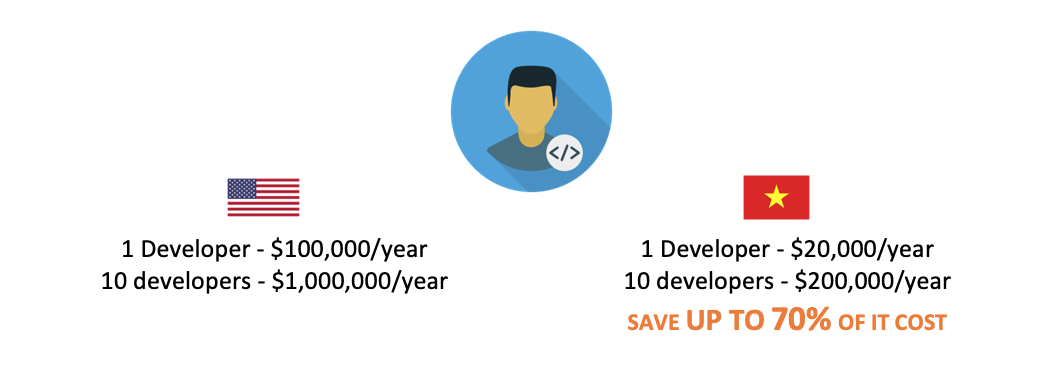
Let’s learn how to Hire Your Offshore Ecommerce Development Team in today’s blog article!
1. What are Offshore E-commerce Development Teams?
2. Why do Businesses Hire Offshore E-commerce Development Teams?
Businesses hire offshore e-commerce development teams for several compelling reasons.
Cost Savings
Offshore teams often operate in countries with lower living costs. This means businesses can access high-quality services at a fraction of the price they would pay locally. Countries like Vietnam, India, Ukraine, and the Philippines have a lower cost of living, which translates into lower hourly rates for highly skilled developers.
Access to a Global Talent Pool
Offshoring opens the door to a vast global market of professionals with diverse skills and expertise. This global talent pool means businesses can find specialists for specific technologies or industries more easily than locally.
Flexibility and Scalability
Offshore teams can be quickly scaled up or down based on the project’s needs. This means businesses can add more developers to speed up the work or scale down to reduce costs without the HR burdens of hiring, training, or layoffs.
Round-the-Clock Productivity
The time zone differences between the hiring company and the offshore team can be turned into an advantage. The offshore team works on tasks and solves problems while the local team is off-duty. This can effectively put the project on a 24-hour development cycle, reducing turnaround times.
Focus on Core Business Activities
Offloading the technical development of e-commerce platforms allows businesses to concentrate on their core competencies, such as product development, marketing, and customer service. This strategic division of labor ensures that each facet of the business receives the attention it needs from experts.
While the offshore team develops a secure and user-friendly online shopping experience, the company can focus on curating products, promotional strategies, and improving customer service.
3. Essential Roles for Your Offshore Ecommerce Development Team
3.1 Project Manager
A project manager acts as the linchpin of your offshore e-commerce team, ensuring that all moving parts are synchronized across different time zones. They set clear goals, deadlines, and expectations. The project managers make sure the team remains on track and cohesive despite geographical distances.
They are in charge of the following aspects, such as
- Project Planning: Defining scope, allocating resources, and setting timelines.
- Budget Management: Creating and tracking the budget to prevent overruns.
- Risk Management: Identifying and mitigating potential risks to the project.
- Stakeholder Communication: Keeping stakeholders informed about project progress and integrating their feedback.
- Project Tracking: Using tools to monitor progress and report to stakeholders.
- Change Management: Adapting to and managing changes in project scope or execution.
- Project Closure: Completing the project, handing over deliverables, and conducting evaluations.
3.2 E-commerce Business Analyst
An e-commerce business analyst helps identify market needs and translate them into technical requirements. They gather and analyze consumer trends, purchasing behaviors, and the competitive environment. By examining how consumers interact with e-commerce platforms, what features they prefer, and what trends are emerging in online shopping, the analyst gains valuable insights into the market needs. Their insights ensure that the offshore team is aligned with the business goals and is developing features that resonate with your target audience.
BA will work closely with both the business stakeholders and the technical team. For business stakeholders, the analyst articulates the market opportunities and customer needs in a way that aligns with the business’s strategic goals. For the technical team, the analyst ensures that these requirements are documented, prioritized, and communicated to the development team.
3.3 UX/UI Designer
UI/UX Designers create the visual and interactive elements of the e-commerce platform, such as layouts, navigation, and buttons, ensuring the interface is intuitive and aligns with user expectations. They also develop wireframes to outline basic design structures and prototypes to simulate user interactions. These tools are used to conceptualize and test ideas before finalizing the design.
3.4 Frontend and Backend Developers
Frontend Developers translate the e-commerce platform’s design into code, creating the user interface that customers interact with. They utilize HTML, CSS, and JavaScript to develop responsive and visually appealing interfaces. Their work includes implementing design wireframes, ensuring cross-browser compatibility, and optimizing web pages for speed and scalability to accommodate users from various regions and devices.
Backend Developers, on the other hand, focus on the server side of the e-commerce platform. They manage the database, server, and application logic. Using languages like Python, Ruby, PHP, and frameworks such as Django or Ruby on Rails, they develop the functionalities that enable user authentication, payment processing, and inventory management. Their responsibilities also include ensuring data security, integrating third-party services (such as payment gateways), and optimizing the application for performance to handle high traffic volumes efficiently.
Together, Frontend and Backend Developers collaborate closely. They ensure the e-commerce platform is not only appealing and easy to navigate but also robust, secure, and scalable.
3.5 Quality Assurance (QA) Specialist
Quality Assurance (QA) Specialists make sure everything on an e-commerce website works perfectly. They test the site to find any mistakes or problems so everything runs smoothly for online customers. QA Engineers know a lot about testing methods that are good for online stores and can work with teams from different places to plan when to do these tests.
They pay close attention to details to ensure the website works well on computers, phones, and tablets, and meets high-quality standards. Their job makes sure customers have a great shopping experience without any issues.
Read more: Hire Quality Assurance Team
4. How to build an Ecommerce development team from scratch?
E-commerce has revolutionized retail, and it’s time for your organization to start an e-commerce website/application. After many years of experience in developing an e-commerce platform, we realize that for this huge plan, your in-house e-commerce team needs to gain 3 abilities to drive your e-commerce success:
4.1 Understanding E-commerce Platform Architecture
Skills in Customization and Extension Development
Your team should have experts proficient in writing plugins, extensions, and themes that adhere to the best practices of the e-commerce platform you choose (like Magento, Shopify, or WooCommerce). This involves creating code that is clean, testable, and easy to maintain, ensuring your platform remains scalable and flexible.
Deployment and Management for High Traffic
Specialists in your team need to manage the technical aspects of deploying an e-commerce website capable of handling high volumes of traffic and large inventories. This includes setting up scalable server infrastructures, optimizing load times, and ensuring the platform’s stability under peak loads, which is crucial for holiday seasons or special promotions.
4.2 Optimize An E-commerce Platform for Revenue Growth
Strategic Analysis and Implementation
Your team must continuously analyze the performance of various features and the overall platform. By understanding user behavior and sales data, the team can optimize the e-commerce platform to increase conversion rates, average order values, and repeat purchases. This requires a blend of analytical skills to interpret data and creative thinking to implement engaging marketing strategies and promotions.
Adaptive Marketing and Sales Strategies
Given the fast-paced nature of e-commerce, your team should be adept at developing and adjusting marketing strategies based on real-time performance and feedback. This includes SEO, content marketing, email campaigns, and social media engagement to drive traffic and convert visitors into loyal customers.
4.3 Effective Management of Ecommerce Development Team
Adopt Agile and Scrum Methodologies
Adopting Agile, Scrum, or similar methodologies allows your ecommerce development team to be more adaptive and responsive to changes. This approach facilitates better communication, quicker iterations, and more effective collaboration. It enables the team to meet deadlines and adapt to market or project changes swiftly.
Communication and Collaboration
Open and active communication is vital, not just within the team but also with stakeholders and clients. Regular meetings, progress updates, and the use of collaboration tools can help keep everyone aligned and informed about project statuses and objectives.
4.4 Increase Development and Adaptability
To stay competitive, it’s essential that your team can build the e-commerce platform efficiently. Besides, they need to iterate on it quickly in response to customer feedback and changing trends. This requires a robust process for collecting and analyzing feedback, a commitment to ongoing testing and optimization, and the flexibility to pivot strategies as needed.
5. Hire Your Offshore Ecommerce Development Team with InApps Technology
Finding and developing an e-commerce development team with these capabilities is challenging and can be costly both in terms of time and resources. It involves not only identifying individuals with the right skills but also fostering a team culture that promotes continuous learning and adaptability to the evolving e-commerce landscape.
We are InApps Technology Company – The World’s Top 50+ Mobile App Development Company In 2020. Our e-commerce development team is helping many international clients turn their ideas into lucrative products, especially e-commerce, and increase their software development capacity with cost-effectiveness and low attrition.
With skillful Magento trainers, Prestashop Experts & Woocommerce senior developers, we support many international e-commerce companies behind the scenes. Our experience in developing & designing retail, e-commerce applications, or e-wallet app has impressed and satisfied our clients for 10+ years.
For the best ecommerce development team, reach out to InApps. The following are the reasons why:
- Get a broad selection of software developers: With InApps, you can access a considerable pool of offshore developers with great skills and talent.
- Every engineer is vetted: Vetting is a necessary procedure that we follow to ensure that only the best engineers are chosen. There is a multi-stage screening process that helps in handpicking agencies.
- Ability to scale the team: With these offshore teams, you will enjoy the flexibility of scaling them according to your startup project.
To get the best e-commerce development team to work for you, connect with InApps.
Let’s create the next big thing together!
Coming together is a beginning. Keeping together is progress. Working together is success.




